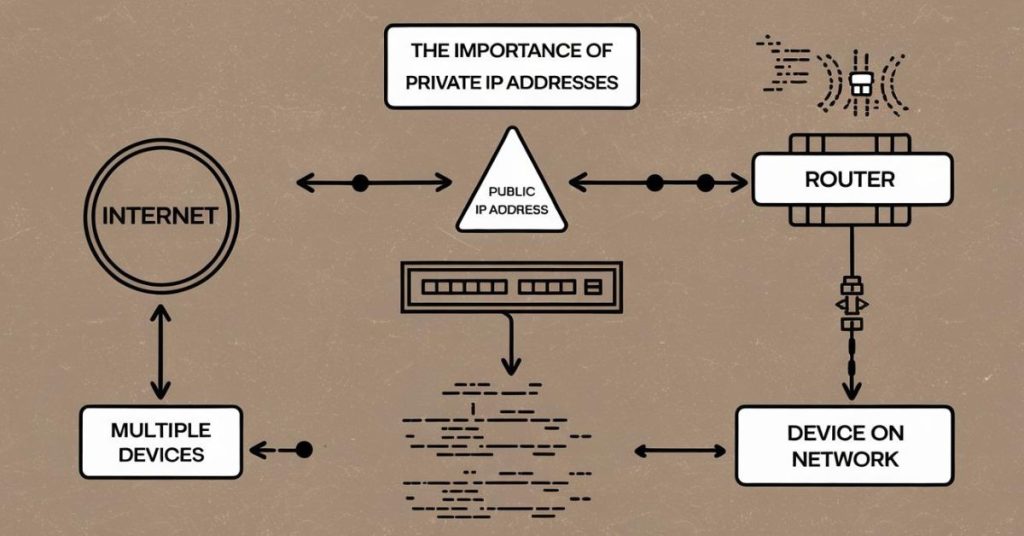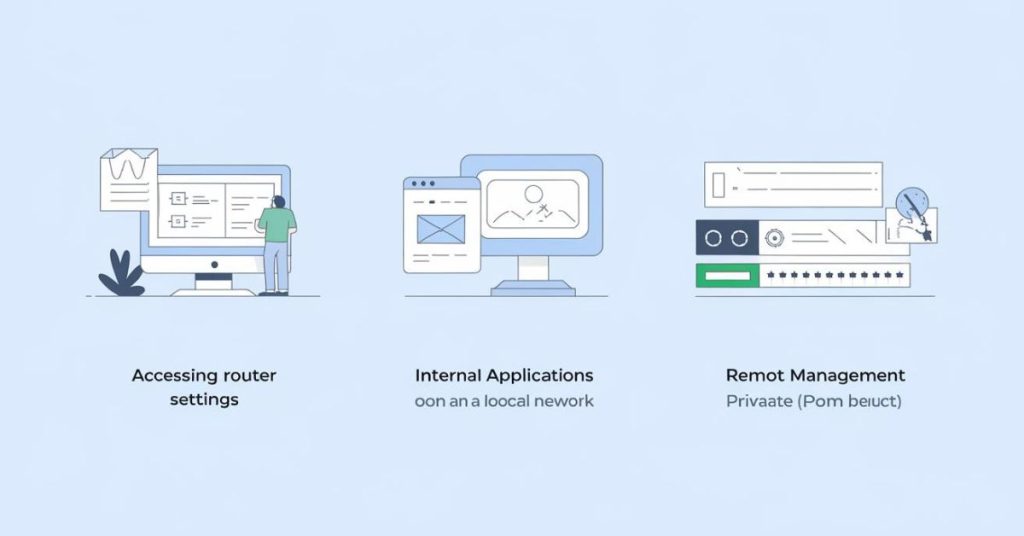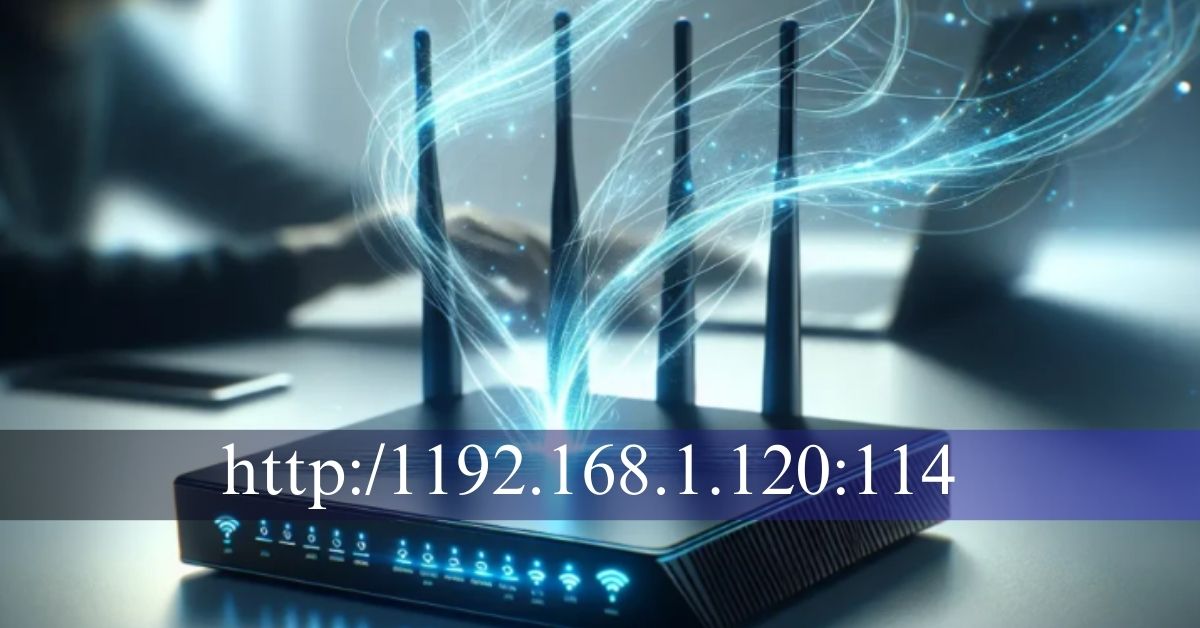http:/1192.168.1.120:114 – Enhanced Local Network Management!
In today’s digital age, accessing the internet and communicating within home or office networks is important for staying connected. One key part of this is using private IP addresses, like 192.168.1.120, which help devices within the same network talk to each other. Unlike public IPs, these private addresses are used only within local networks, making them essential for efficient internal communication.
When you see something like “http:/1192.168.1.120:114,” it might look confusing, but it represents how network infrastructure works behind the scenes. This article will break down the role of private IPs in simple terms, explaining their function and importance in modern networking.
What is http:/1192.168.1.120:114?
To break down http:/1192.168.1.120:114, we first need to understand that this is a local IP address that is used to facilitate internal communications within a network. The numbers represent a private IP address (192.168.1.120) combined with a port number (114) that is specific to a service or function.
Here’s a simple breakdown:
- 192.168.1.120 – A private IP address reserved for internal network communications, often used for device identification within a LAN.
- 114 – A port number indicating a specific service or application running on the device that this IP address points to.
Together, http:/1192.168.1.120:114 allows users to access a particular service hosted on the internal network. Since this IP address falls within the range of private addresses, it is not accessible from the public internet, ensuring privacy and security for local communications.
The Importance of Private IP Addresses –Don’t Miss Out!

Private IP addresses, such as 192.168.1.120, are crucial for the management of local networks. They enable devices within a network — like computers, printers, smartphones, and other smart devices — to interact with one another without exposing them to the public internet. This isolation ensures that external threats are minimized, enhancing security and allowing for smooth internal operations.
Key Points:
- Local Communication – Private IPs are used for communication between devices on the same local network.
- Not Publicly Accessible – These IPs cannot be reached from outside the network, ensuring security.
- Efficient Resource Allocation – Helps in managing devices and services within a confined network.
How Does http:/1192.168.1.120:114 Work in Networking?
When you enter an address like http:/1192.168.1.120:114, you are accessing a specific service or resource within the local network. This IP address refers to a particular device (192.168.1.120), and the port number (114) directs your request to a specific application or service running on that device.
Think of it like this: the IP address is like a street address, and the port number is like an apartment number within that address. Together, they ensure that the right message reaches the correct destination within the network.
Common Use Cases:
- Internal Web Services: Accessing an internal website or application.
- Device Management: Configuring routers, printers, or other smart devices on the local network.
- Monitoring Services: Checking the status of a specific service or server.
Do You Know? Depomin82 – The Compound Transforming Industries!
Security Implications of Private IPs Like http:/1192.168.1.120:114
One of the biggest advantages of using private IP addresses like 192.168.1.120 is the security they provide. Since these IPs are confined to local networks and cannot be accessed from the broader internet, they offer a layer of protection against unauthorized access.
However, this does not mean that private IPs are immune to internal threats. Network administrators still need to ensure that proper security protocols, such as firewalls and access controls, are in place to prevent misuse or accidental exposure of private services to unauthorized users.
Security Best Practices:
- Firewall Configuration – Ensure that external access to private IPs is properly blocked.
- Port Management – Only expose necessary ports to prevent misuse.
- Network Segmentation – Divide the network into segments to limit potential attack vectors.
Never Miss: Chase Verify Card – Your Gateway to Secure Banking!
The Role of Port Numbers – What is Port 114 in http:/1192.168.1.120:114?
A port number is a vital component in any networking setup, as it helps route traffic to the correct service or application on a device. In http:/1192.168.1.120:114, the port number (114) refers to a specific service running on the device with IP address 192.168.1.120.
Port numbers range from 0 to 65535, and each port is assigned to a specific protocol or service by default. Some ports are reserved for common services, like HTTP (port 80) or HTTPS (port 443), while others can be used for custom applications. In this case, port 114 might be linked to a particular application or service, depending on the network’s configuration.
Take Analysis To: SolarMovies MS – Best Free Streaming Site!
Common Scenarios Where http:/1192.168.1.120:114 Might Be Used:

Private IP addresses like 192.168.1.120 and specific port numbers like 114 are commonly used in internal networks for a variety of purposes. Below are some scenarios where you might encounter this setup:
1. Router or Network Device Configuration
Many users access their router’s settings using private IP addresses like 192.168.1.120, which can be paired with a port number to access specific services or settings.
2. Internal Applications
Organizations may host internal web applications or services that are only accessible via the local network. For instance, a company might use 192.168.1.120:114 to access a private dashboard or management tool.
3. Remote Management
Network administrators often use private IP addresses to remotely manage devices on the network. Using a combination of IP addresses and port numbers helps them perform specific tasks without needing direct physical access.
Advantages of Using Private IPs Like “http:/1192.168.1.120:114”
- Enhanced Security: Devices communicating via private IPs are not directly exposed to the internet, reducing the risk of unauthorized access.
- Network Flexibility: Private IPs allow for the creation of larger, more versatile networks without requiring extra public IP addresses.
- Cost Efficiency: Since private IP addresses do not require registration or assignment by an external authority, they provide a free and efficient way to expand local networks.
Recent Post: Best Indoor Basketball – Expert Reviews For Top Picks!
Understanding IP Addresses – Private IPs vs. Public IPs!
1. Private IP Address: A Local Identifier
Private IP addresses are reserved for use within private networks, such as home, office, or enterprise LANs (Local Area Networks). These IP addresses are not routable over the public internet, meaning that devices using private IPs cannot communicate directly with devices on other private networks or the broader internet without some intermediary.
Common Private IP Address Ranges
The Internet Assigned Numbers Authority (IANA) has reserved the following ranges for private IP addresses:
- 10.0.0.0 to 10.255.255.255 (10/8 prefix)
- 172.16.0.0 to 172.31.255.255 (172.16/12 prefix)
- 192.168.0.0 to 192.168.255.255 (192.168/16 prefix)
These IP addresses are commonly used to set up a local network where multiple devices (like computers, printers, smartphones, and smart appliances) communicate with each other.
Use Cases for Private IP Addresses:
- Local Communication: Private IP addresses are used within a local network to communicate between devices. This setup is useful for sharing files, printers, or other resources.
- Network Management: Routers and modems typically have a default private IP address (e.g., 192.168.1.1) to allow users to log in and manage the network settings.
- Security: Devices with private IP addresses are protected from direct access over the internet, adding an extra layer of security.
2. Public IP Address: Your Gateway to the Internet
A public IP address is an IP address that is accessible over the internet. Public IPs are used to identify devices on the internet, allowing them to communicate with each other across different networks globally.
How Public IP Addresses Work?
Public IP addresses are assigned by your Internet Service Provider (ISP) and are used for identifying and locating devices on the internet. They are routable, which means data can be transmitted across different networks, and devices can communicate globally.
When you type in a website like “www.google.com,” your request is sent from your private IP address through your router’s public IP address, which communicates with the website’s server (which also has a public IP) to deliver the content back to your device.
Use Cases for Public IP Addresses:
- Global Communication: Any device that needs to connect to the broader internet needs a public IP address. Servers, websites, and services that are accessible from anywhere need to have a public IP address.
- Remote Access: Devices that need to be accessed remotely from outside the local network (e.g., security cameras, home automation systems) require a public IP address.
Also Check: Clickbaitosaurus –The Attention-Grabbing!
Real-World Applications of “http:/1192.168.1.120:114”:
The IP address 192.168.1.120 can be used in various scenarios within a local area network. For instance:
- Home Networks: In a home Wi-Fi network, 192.168.1.120 might be assigned to a smart TV or a printer. Accessing this device would require an understanding of the IP address and any designated port number.
- Office Networks: In an office environment, 192.168.1.120 could be a local server hosting applications or files accessible through port 114.
- IoT Devices: Internet of Things (IoT) devices often rely on private IP addresses like 192.168.1.120 to function within a home or office network.
Interesting Fact: 2023-1954 – A Retrospective on 69 Years of Change!
Challenges with Using Private IPs – Must Know!
Despite their advantages, using private IPs can present challenges such as:
- Limited Access: Devices using private IP addresses cannot be accessed from outside the local network without proper configuration (e.g., setting up port forwarding).
- Conflicting IPs: In cases where two devices use the same IP address within a network, conflicts can arise, causing communication issues.
- Complex Setup: Configuring devices to communicate through specific ports, such as “:114,” may require advanced networking knowledge.
Latest Post: SRT-LeBron Toronto Huskies – Revolutionizing Canadian Basketball!
Why Can’t http:/1192.168.1.120:114 Be Accessed Publicly?
Since http:/1192.168.1.120:114 is a private IP address, it falls within the range of IP addresses reserved by IPv4 for internal networks. This means it cannot be routed over the public internet, making it invisible to anyone outside the local network.
This limitation ensures that devices within a LAN are protected from external attacks. It also reduces congestion on the public internet by keeping internal network traffic separate.
You have to Read: Newzjunky Lowville NY – The #1 Local News Source!
How Do I Troubleshoot Connection Issues To “Http:/1192.168.1.120:114”?
Verify the URL Format:
Ensure the URL is correctly formatted as http://192.168.1.120:114. The original format appears to be incorrect, with a missing slash after http:.
Check Network Connectivity:
- Use the ping command to verify if the IP address (192.168.1.120) is reachable from your device.
- If the ping fails, the target device might be offline, disconnected from the network, or unreachable due to network issues.
Test Port Accessibility:
- Use tools like telnet, nc (Netcat), or nmap to test if port 114 is open and listening for connections.
- If the port is closed, you may need to check the service running on that port or open it via firewall/router settings.
Check Firewall Settings:
Ensure that the firewall on your device, router, or the target device is not blocking connections to port 114. If necessary, adjust the firewall rules to allow traffic through this port for uninterrupted access.
Verify the Service:
Make sure the service or application running on port 114 is active. If it is down, restart the service and verify the configuration.
Try a Different Browser or Device:
Use another browser or device to access the URL. This will help determine if the issue is browser- or device-specific.
Check for IP Conflicts:
Make sure that the IP address 192.168.1.120 is not conflicting with another device in your network. IP conflicts can lead to connection issues.
Consult Logs:
Check the service logs on the device with IP 192.168.1.120 for any errors that might explain why the connection is failing.
These steps can help you diagnose and resolve connectivity issues effectively.
Have You Explored? Maniabsedit Not Able To Mark Blue Spheres As Ring – Try These Fixes!
Frequently Asked Questions (FAQs):
1. Why does “http:/1192.168.1.120:114” ask for login credentials?
If a service or application is running on this IP and port, it might require authentication for security reasons. You would need the correct username and password to access it.
2. What is the purpose of port 114 in “http:/1192.168.1.120:114”?
The port number (114) directs the network request to a specific service or application on the device with IP address 192.168.1.120. Ports help differentiate between various services running on the same device.
3. How do I find out which service is running on port 114?
To determine which service is running on port 114, you can check the device’s network configuration or use a tool like netstat on the device. Port 114 could be associated with a specific custom application configured by the network administrator.
4. Can a private IP address be accessed from the public internet?
No, private IP addresses cannot be accessed directly from the public internet without specific configurations, such as port forwarding or a VPN.
5. Can multiple devices use “http:/1192.168.1.120:114” on the same network?
No, each IP address in a local network must be unique. If two devices use the same IP address, it can cause an IP conflict, leading to network issues. However, different devices can have different port numbers on the same IP address.
6. How can I access “http:/1192.168.1.120:114” from outside my local network?
To access http:/1192.168.1.120:114 from outside the local network, you would need to set up port forwarding on your router or use a VPN. These configurations allow you to create a secure tunnel into the local network.
Conclusion:
The use of private IP addresses like 192.168.1.120, combined with a port number like 114, is an essential part of internal networking. It helps devices communicate efficiently while maintaining security and isolation from the public internet.
Whether you’re managing devices, accessing internal services, or ensuring network security, understanding how private IPs like http:/1192.168.1.120:114 function is critical in today’s connected world.




